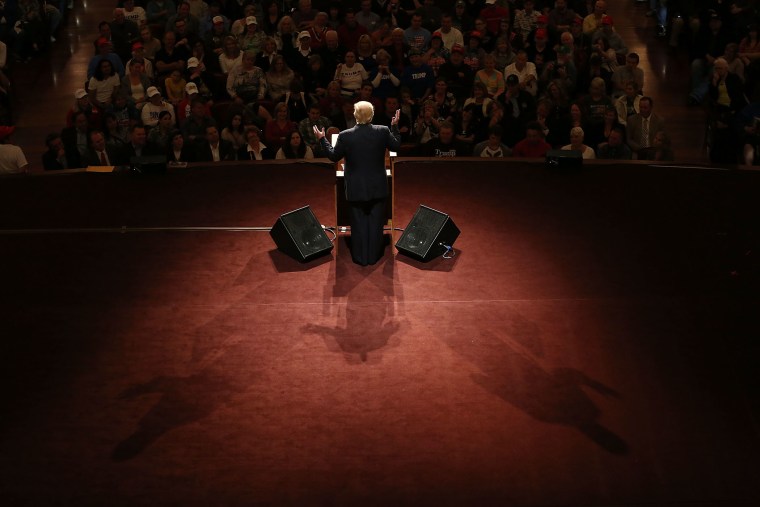It's Campaign Management 101: It's not enough to research your rivals; you have to research yourself. Taking a close look at your opponents' backgrounds will help uncover their strengths and weaknesses, which in turn will help shape your strategy, but digging through your own background will help you anticipate and prepare for upcoming lines of attack.
None of this is controversial. There are professional researchers who, for a handsome fee, do nothing but this and I've never heard of a modern national candidate who chose not to take advantage of these services.
That is, until now. Mother Jones' David Corn reported yesterday on a detail that should make Republicans nervous.
For most major presidential campaigns, it is a routine act: You conduct opposition research on your own candidate. The reason is obvious; campaign officials and candidates want to know what they might have to contend with once the you-know-what starts flying. But not Donald Trump. At least not at the start of the campaign that would lead to him becoming the presumptive GOP nominee. According to a source with direct knowledge, when Trump was considering entering the presidential race early last year, his political advisers, including Corey Lewandowski, who would become his campaign manager, suggested that he hire a professional to investigate his past. But the celebrity mogul said no and refused to pay for it.
It would be a mistake for any national candidate to skip this part of the process, but for a guy like Trump -- who's record includes a long list of personal and professional controversies -- it's incredibly reckless.
Corn's report added, "The candidate, who now refuses to release his income taxes, did not want his own campaign scrutinizing his past. He was not willing to be transparent -- not even for his own team."
It's not a good sign, but just as importantly, it dovetails with an interesting conspiracy theory that some Trump fans have been floating over the last week or so.
Late last week, the Washington Post published a deeply unflattering piece about Trump occasionally pretending to be his own publicist -- bragging to reporters about his own greatness, but in the third person -- and then lying about it. A couple of days later, the New York Times published an even uglier piece about Trump's mistreatment of women.
As The New Republic's Brian Beutler noted, a Ted Cruz prediction quickly came to mind: Cruz argued that the big, bad "liberal" media had dug up a lot of dirt on Trump, but news organizations were deliberately keeping it under wraps. Once Trump wrapped up the nomination, the theory went, the media would start releasing the embarrassing stories, thereby hurting Republicans as part of a nefarious scheme.
In light of some of the new revelations, does the conspiracy theory have merit? Of course not.
The truth is, news organizations have been broadcasting and printing all kinds of Trump-related coverage for years -- much of it unflattering -- and Republican primary voters embraced him anyway. Democratic officials have acknowledged for months that their opposition research into the presumptive GOP nominee has filled volumes, digging up stuff Trump's rivals should have found but didn't.
The question is not why some of these ugly details are coming out now; the question is why Trump and his team weren't ready for them. Now we know the answer: because Trump himself reportedly didn't want a careful examination of his own record.
